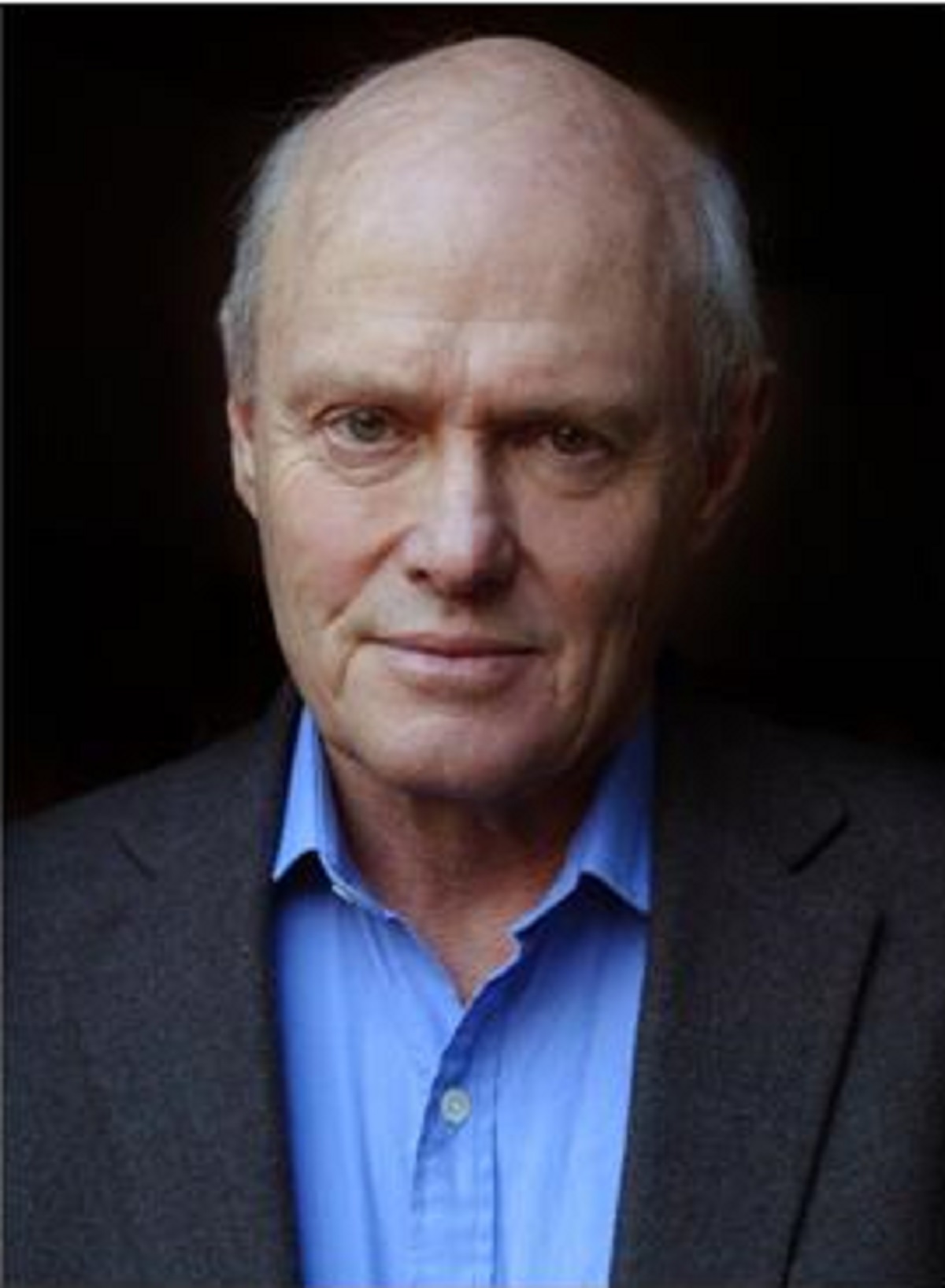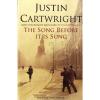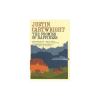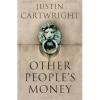Estate of Justin Cartwright
Books
Film, TV & Theatre
Books
It is with great sadness that we mark the death of Justin Cartwright.
The acclaimed author, who passed away peacefully on Monday 3 December 2018, wrote more than a dozen novels in a career spanning four decades of success, and will be remembered as one of the finest novelists of his age. That success included a shortlisting for the Booker Prize with IN EVERY FACE I MEET, and several times for the Whitbread (now the Costa) Novel Award. He was to take the Whitbread with LEADING THE CHEERS in 1999, as well as winning the Commonwealth Writers Prize, the South African Sunday Times Literary Award, and the Hawthornden Prize for Literature for his bestselling THE PROMISE OF HAPPINESS, which was an original Richard & Judy Book Club selection. In recent years he was also a judge of the Costa Novel Award, and the International Man Booker Prize, both of which gave him huge satisfaction and enjoyment.
A sublime chronicler of the way we live now, Justin will be remembered for his razor-sharp observation of modern human behaviour and its obsessions and concerns, his complex and often compromised characters, a probing questioning of morality and responsibility at the heart of all of his novels, and an electrically wry humour never far from the surface of his writing. Justin was described in the Guardian as “one of the finest novelists currently at work”, and by the Los Angeles Times as “a senior member of a masterful generation of English novelists that includes Martin Amis, Ian McEwan, Salman Rushdie, and Kazuo Ishiguro” and he leaves behind a body of work that is an unalloyed tribute to him. But his greatest pride and joy were his wife and two sons and his grandchildren, to whom we send our sincere condolences.
Remembering his early career in the Guardian in 2010 Justin wrote:
“I was now a professional writer, a novelist. I was convinced then, and I am now, that writing can change the world we live in, if only by tiny increments. I don't mean change in the politicians' jargon, but change that comes from enabling the reader to see another, imagined world, and to read things expressed in a way that affects them forever, so that they will always associate a place, or a lover, or an emotion with a phrase they have read. My world was formed by books. It's important to read with the eyes of a child, making the world new, rather than confirming what you already know.”
These are simple words, expressing with stunning clarity deeper truths – the skill that is at the heart of how we will remember Justin. A cherished client of United Agents since its very first day of business, he was a warm and generous man, a brilliant novelist, and a dear friend.
UP AGAINST THE NIGHT - Bloomsbury - August 2015
'History ...is seldom able to convey the essence of being human'
Frank McAllister has become wealthy in England, where he has lived for thirty years. He has a house in Notting Hill, a house in the New Forest, and a house near Cape Town. But more and more he feels alienated in England.
As the book opens, he is preparing to go to South Africa with his lover, Nellie. He is also waiting anxiously for his daughter, Lucinda, to arrive from California, where she has been in rehab. Frank is a descendant of the Boer leader, Piet Retief, who was murdered by the Zulu king Dingane, along with all his followers, in 1938. He has been an icon of Afrikaners ever since. Frank's Afrikaner cousin, Jaco, has become moderately famous on YouTube for having faced down a huge white shark. He is now in America, where he has joined the Scientologists. His chaotic and violent life spills over on to Frank. He is drawn into a world of violence and delusion that is to threaten the family.
Justin Cartwright possesses that rarest of novelist's skills - the ability to create fiction which is intensely serious but which also vividly encompasses the absurdity and comedy of life. Up Against the Night is a subtle, brilliant novel about South Africa, its beautiful, superbly evoked landscape, its violent past and its uncertain present.
Justin Cartwright is a descendant of Piet Retief.
Praise for UP AGAINST THE NIGHT
'Fans of Justin Cartwright’s compendious oeuvre … will be cheered to discover that all of the essential elements of Planet Cartwright are reliably on display … as is invariably the case with Cartwright, will read on delightedly to the close.' Independent
'A gratifyingly unsound psychological odyssey [which] quietly but powerfully redefines history.' New York Times
'Up Against the Night, with its subversive mix of tenderness and terror, is a rare novel that gets South Africa right.' Guardian
'As always, Cartwright draws you into his characters’ lives, the smug security of wealth undermined by the lurking threat of violence. This is up there with his best.' Daily Mail
'Relaxed and compelling … the masterly Cartwright confidently on home territory.' Philip Hensher, Spectator
'Evoking Coetzee’s Disgrace and Gordimer’s The House Gun, Cartwright brings new twists and a sure touch to his tragicomedy about a decent man’s rude awakening to shared history's capricious side.' Kirkus Reviews
'This is Cartwright at his best, delivering a strong story with skill and feeling.' Mail on Sunday
'History at its most ambivalent emerges as the prevailing theme of this clever novel from the consistently astute and witty Justin Cartwright … This entertaining, very human novel about one man’s darkest thoughts has a serious heart rooted in a history that refuses to go away.' Irish Times
'Cartwright’s tale of the confrontation of national and personal identities is unblinking – at times beautiful and full of love, at others, lonely and desperate.' Historical Novel Society Review
'Cartwright's provocative tale of one troubled family mirrors the history of South Africa, from its brutal beginnings through its repressive apartheid years to its violent, vengeful present. Strongly recommended.' Library Journal
'A story where emotions are inescapably linked to the land of one’s birth and paradise is spoilt by the worm in the bud. Brilliant.' Lady Magazine
'The master of the erudite soft touch, Cartwright is on masterly form.' Monocle
'Incredibly evocative, with violent vibrations.' Red
'A tale of one South African man that combines beauty, joy, and foreboding.' Publishers Weekly
Praise for LION HEART
'Anybody who wonders whether novelists can keep up with an accelerating world should read Justin Cartwright. The South African-born author, who settled in England more than 40 years ago, consistently captures the zeitgeist and his new novel is timely even by his standards ... an ambitious meditation on history and fiction, which explores medieval and modern religious conflicts and some of England's favourite myths.' Independent on Sunday
'Glorious ... the magic trick of this extraordinary novel is that elusiveness is its appeal and its goal ... Because for Cartwright – as for Richie, and indeed most readers – truth consists of a great unwieldy mass of detail and an attempt to keep emotion in check. It looks like an impossible task, and yet such is Cartwright's brilliance that it works triumphantly. Like William Boyd and James Hamilton-Paterson at their very best, Cartwright has the ability to elicit laughter and pity at once, while at the same time evoking a scene or atmosphere with effortless precision ... Cartwright is unbeatable.' Guardian
'Lion Heart is a highly ambitious book, the tangled connections between past events and modern players plaited with sophistication and an effortlessly beguiling style ... Cartwright is a pleasure, for the authority of his style, his intellectual mettle and his sentimental, courtly heart.' Rosemary Goring, Herald
'Highly accomplished ... Novels involving esoteric relics too often tend to be bilge; Cartwright should be congratulated on writing one that isn’t.' Sunday Times
'One of our most inventive and unpredictable novelists: he never repeats himself stylistically and tackles unusual, sometimes seemingly un-literary, themes.' Viv Groskop, The Times
'Across a dozen novels of high intellectual distinction and finely-crafted readability, the South African-born writer has often pitched his plot around stories that breed life-changing doubts and disputes ... Every life, every story, becomes a palimpsest here: a layered tissue of erasures and amendments, with truths, lies and hopes forever overlaid on one another. As smart and fluent as we expect from Cartwright, and more affecting than its scepticism about our knowledge and convictions would suggest, Lion Heart deciphers with a shrewd eye the nagging riddles of history - and of the human heart.' Boyd Tonkin, Independent
Praise for OTHER PEOPLE'S MONEY
'In this comedy of errors, Justin Cartwright, a novelist who works in shades of grey, makes sure that the bankers are just as good and evil as the characters around them … Caustic and entertaining, this satire counts the cost of being human.' Independent
'This is one of those books about how a chain of events can take place. One day, somebody doesn’t get their rent money, and whoosh, a great institution is threatened. Very cleverly put together, and funny as well.' Evening Standard
'What a great read this is ... masterpiece of a comic novel ... This novel really shows that to his credit Cartwright is a difficult writer to pigeon hole ... Other People’s Money is in a class of its own: both commercial and literary at the same time ... a read as enjoyable as it is intelligent, without pretensions and not straitjacketed by genre. Without exaggeration, Other People’s Money just felt to me exactly like the novel I wanted to read right now ... This is a gentle work of genius which creeps up on you. It is also the only time a book has ever caused me to laugh out loud with sheer joy on the very last page. A treat from triumphant start to finish.' Observer
'Socially and geographically, the novel ranges widely. Cartwright sends his story line zigzagging out to encompass the Riviera, Liechtenstein, Chicago, Africa, glossy enclaves in the City and ramshackle premises in the West Country. Deft intercuttings satirically counterpoint lifestyles ... Cartwright’s novel displays, with triumphant accomplishment, the pleasures and the potency of spot-on social reportage.' Peter Kemp, Sunday Times
'Urgently topical fiction with its finger on the pulse of earth-shaking events ... For more than two decades I have admired Cartwright’s fiction for its uncanny habit of catching the zeitgeist in nets of fine-meshed tragic-comic steel ... the novel moves fast, hits hard, and rings true. Cartwright has plunged into the money-pits before. In 1990, Look At It This Way – his second serious novel, after Interior in 1988 - resoundingly rang a curtain down on the Thatcher era of fast cash and low deals. Other novels such as In Every Face I Meet (1995) and Half in Love (2001) sustained a note of visionary reportage. Such books infuse a fierce grasp of contemporary history with a sense of lyricism and longing that brings an edge of transcendence to his worldly voice and timely plots. And Cartwright has always been a virtuoso of family drama, as power-relations shift and generations swap places. In Other People's Money, family and finance forever intertwine.' Boyd Tonkin, Independent
'Brilliant.' Kate Saunders, The Times
'Trust Justin Cartwright to anatomise the ramifications of the global banking crisis – and produce a novel that is funny, mordant and moving ... Cartwright is such a keen observer of human nature, and such a sharp recorder of his observations, that there are gems of description on every page ... the book as a whole is sleek and impressive and effortlessly superior as a flight to the south of France on a banker’s private jet.' David Robson, Sunday Telegraph
'In sharply observed, suavely written scenes ... deft intercuttings satirically counterpoint lifestyles ... a novel that displays, with triumphant accomplishment, the pleasures and the potency of spot-on social reportage.' Peter Kemp, Sunday Times
'Yet in the end, though other people’s money may have been lost, other things have been gained; life goes on in this delightful novel, as it does in the world that it so gently satirises.' Lucy Kellaway, Financial Times
'[A] highly accomplished fictional take on the meltdown in the money markets.' Sunday Times Must Reads
'A literary first - a feel-good novel about the financial crisis. Second, it is a comedy of manners, in which bankers are good and bad - as are journalists, failed actors, drop-outs and postmen ... delightful.' Financial Times
'This is a serious novel with a light touch. Cartwright is as accomplished as anyone writing fiction today. He has all the virtues of the traditional mainstream novelist. He is a master of the kind of narrative which seems leisurely, yet draws the reader on as the pace increases. He creates a diversity of characters, most of whom have convincing back-stories; novelists should always know much about their characters that is never explicit. He is sympathetic and is ever ready with the illuminating detail. He knows that people are rarely all of a piece, and like the great 19th-century novelist he knows the value of setting flat characters - like the lawyer Amanda - who exist for comic effect, against the more fully-drawn ones with whose perplexities the reader engages. He has mastered the difficult craft which enables him to know when to draw a scene out and when to cut it short, and he has the rare ability of allowing his characters to reveal themselves in speech ... Indeed, Cartwright's judgement of when to show and when to tell is unerring. He makes the reader think and feel, one mark of a good novel. Other People's Money invites us to reflect on the way we live; and it's thoroughly enjoyable. What more can you ask for?' Alan Massie, Scotsman
'Brilliant snapshot of a country and class in terminal decline … Cartwright describes vividly the family intrigues and mannerisms of the dying breed and the corrosion of values which is the corollary of a prolonged decline in institutions. For all today's fashionable comparison with the strife-torn England of the Seventies, people forget that 40 years ago our institutions, including our banks, universities and schools, were still very much at the top of their game. As Cartwright so elegantly describes in this book, this is no longer the case.' Evening Standard
'Recent events give us little cause to feel warmth for bankers but Cartwright redeems the industry with humour and humanity.' Metro
“Cartwright’s highly spiced mix of ‘Englishness’, high finance and low cunning, fathers, sons and twitches on the familial thread is quite as irresistible as his cool and impossibly laconic style ... highly intelligent and horribly devious.' Literary Review
“Other People's Money is wise, droll and beautiful fiction” David Mitchell
'A tale half comic and half cautionary—and all compelling—about the financial crisis … Witty, thoughtful, briskly paced and entertaining—a terrific novel about excess, hubris, class and the age-old (usually one-sided) tussle between art and commerce.” Kirkus Reviews (Starred review)
'[Cartwright] is one of the most talented novelists working in Britain today. Largely unsung, he neither fits in among the celebrated heavyweights of British literary fiction nor does he receive the popular acclaim enjoyed by writers of unit-shifting airport fodder. He writes quality mainstream fiction, and Other People’s Money plays to his strengths. Cartwright has a great facility for writing about family dynamics, disillusionment and regret … His skill is also evident in the vein of humour he brings to the book, introducing it gradually until it’s balancing the weightier themes.' Herald
'Justin Cartwright writes with a seductive energy. He throws colour around and has characters scrambling from the corners of his canvas … Other People’s Money is a vivid, vibrant slice-of-life book … a variegated novel, virtuoso in its articulation that’s going to crowd with characterization and crow with confidence …Cartwright is a writer with a big gift and what looks like a lot of very worldly fictional ambitions. At one level Other People's Money is a beguiling, breakneck near-thriller, elegantly and engagingly threaded, but with a big splash of high and mighty literary reality and true emotional intensity, about how money can kill anything, including the better impulses of the human heart … It is a supple and engrossing yarn about markets gone mad and men gone bad, which should hold the attention of every kind of reader. Other People's Money is such a delight of a book.' The Australian
'In a post-modern comedy and tragedy of manners – Flann O’brien wrote a book, Artair observes, in which the characters refused to obey the author and took of the story – Cartwright deals with his their clashes of commerce and culture with tactile and also olfactory relish.' Spectator
'A novel that is both funny and wise.' The Economist
'Marvellous powers of observation and deftness of prose ... The wealth of detail and detail of wealth is very much the territory to be found in the immensely enjoyable novels of Nicholas Coleridge. Much of Sebastian Faulks’s A Week in December occupied similar ground. These books fly off the shelves and so should Other People’s Money, which is astute and light footed ... it’s also composed with a superb eye and supremely well written.' Cressida Connolly, Daily Telegraph
'Enjoyably satirical comedy of manners ... he does exceptionally well to navigate the tricky business of writing about money and its byways without bewildering or boring the reader ... Cartwright sets his plates spinning and keeps them in the air with some aplomb, ably managing the tension created by looming financial disaster, the threat of exposure by the newspaper and familial and romantic machinations. He is particularly good at conveying the hideously energised, dread-filled atmosphere that builds before an inevitable death, and the strange shame-tinged realignments that take place in its aftermath. This is, of course, a novel very much of its time ... Cartwright, who impressively refuses to write the same novel twice, is a clued-up guide, and Other People’s Money a well-paced and absorbing read.' Alex Clark, Guardian
'Many books have been written about the financial crisis, but few stand out so much as Other People’s Money, the new novel by Justin Cartwright ... It is a rarity in that it is one of the few decent works of fiction to have appeared about the credit crunch and the people responsible for it ... Acres of non-fiction have been published ... but in fiction you can get closer to the truth, even if you are dealing with made-up people and places.' Yorkshire Post
'Justin Cartwright’s topical 11th novel is so astute it sizzles with knowing... and it is relentlessly funny... he has long been one of the most sophisticated exponents of the well-observed and artfully nuanced English comic novel ... Few living British novelists write English fiction quite as well as Cartwright. The quality that sets him apart from most if his contemporaries is that, beneath the humour and the irony, he has a subtle awareness of the essential fragility of humans, however flawed ... A novel that exudes characteristic Cartwright skill, wit and savvy.' Irish Times
'Sharp, satirical, and does a very good job of giving you a cultural landscape of how we live now ... Very exciting as a book because he gets right so many aspects and facets of our lives right now and it’s also very funny.' Ekow Eshun, Saturday Review (Radio 4)
'The ending is extraordinary ... a bit like the end of The French Lieutenant’s Woman ... like an adventure novel for literati.' Christopher Frayling, Saturday Review (Radio 4)
'Cartwright’s subtle and pacey comedy of manners finds its humour and humanity in the shades of moral grey that define all its main characters ... Formerly Booker-shortlisted Cartwright delights in allowing each of these to contradict cliché, demonstrating that people are as impossible to predict as the markets.' Daily Mail
'Every book Justin Cartwright produces is different and wonderful, and this is no exception ... the characters are as well drawn as ever and it's very funny. The discerning already know he's a great writer; this, though, may be the best-seller that takes him to a wider audience.' CountryLife
'Read it for its contemporary resonance and its insight into class and greed.' Tatler
'Very accomplished ... it was a well-plotted pace, the characters were all beautifully realised … I can see reading groups everywhere loving this book. I think this is going to be an enormous success.' Rowan Pelling, Saturday Review
'The best book I’ve read in six months.' Boston Globe
'Absolute marvel of comedy and intellectual depth.' Barnes and Noble book review
Fiction
| Publication Details | Notes |
|---|---|
2013 Bloomsbury | Richie Cathar's father, Alaric, was a renaissance man: an intellectual, explorer, archaeologist and historian. He was also a man of the sixties: a fantasist, absentee parent and drug abuser. Alaric named his son after his hero, Richard, Coeur de Lion, but left him little when he died apart from conflicting memories. Now Richie, thirty-something, is in search of his own role... Following his father's trail to the Holy Land to research the Art of the Medieval Latin Kingdom, Richie's quest - to uncover the fate of Christianity's most sacred relic and the truth about his father - takes him from the high-table intrigue of Oxford to the imposing Crusader castles of Jordan, and into a passionate love affair with Noor, a Canadian-Arab journalist, whose fate will become entwined with Richie's own. Shot through with Justin Cartwright's trademark sharp observation and heartbreaking drama, Lion Heart is a thrilling, romantic and original work from one of our finest novelists. |
2011 Bloomsbury | The upper-crust, family-owned bank of Tubal & Co, in the City of London, is in trouble. It’s not the first time in its three hundred and forty year history, but it may be the last. A secret sale is under way, and a number of facts need to be kept hidden from the regulators and major clients. Masterminded by the bank's chariman, Julian Trevelyan-Tubal, hundreds of millions of pounds are being diverted – temporarily – to shore the bank up until it can be sold. Julian's aging father, Sir Harry, incapacitated by a stroke at the family villa in Antibes, would be horrified. He is still writing barely intelligible letters to Julian, which advise him to stick to the time-honoured traditions of the bank. Had his son taken his advice, the bank might still be solvent. Inevitably great families have secrets; lovers, old partners, or retainers who resent not being part of the family, all have a habit of turning awkward. When an alimony payment from the bank - disguised as a charitable donation - to an abandoned husband, the penniless-but-heroic actor-manager Artair MacCleod, fails to arrive, the initial trickle of doubt swell into a torrent of catastrophe for the family. Other People’s Money is a gripping and often hilarious story, an acutely delineated portrait of a world and a class. Justin Cartwright manipulates our sympathies effortlessly, unwinding the story with gentle satire and acute, beautifully phrased insights into the eccentricities and weaknesses of the human condition. To watch Justin discussing Other People's Money click here |
2009 Bloomsbury | “David Cross can’t tell Ed or Lucy that he is in some ways happier now that their mother is dead. But to his own mind he is more himself than he has been for nearly forty years and he has friends, a little ravaged it is true, who understand him. As far as that is possible. When Nancy was alive, he had secrets that he kept from her. Now that she is dead he has a secret that he must keep from his children: he is not unhappy.” Now that his wife is dead, retired television news anchor, David Cross, believes that he is more himself than he has been for forty years. When Nancy was alive, he had secrets that he kept from her. Now he has a secret that he must keep from his children, Ed and Lucy, namely that he is in some ways happier now than he was when their mother was alive. TO HEAVEN BY WATER is a touching and hilarious portrait of the Cross family, trying in their own fashion to come to terms with their loss. David knows that his children are perplexed by his increasingly compulsive behaviour while Ed's marriage to the lovely Rosalie, a former ballet dancer, is suffering strain, and Lucy is being stalked by her ex-boyfriend. Both children worry that their father will soon find a new partner. Over all three of them hangs the memory of Nancy. The book opens as David is taking time out with his brother in the Kalahari Desert, re-living his tumultuous and uplifting memories of Rome where he worked on a film with Richard Burton. Back home in London, Ed is trying to balance his affair with a young woman in his office with his real love for his wife, who is unable to conceive the child she longs for. And Lucy, who has just been voted No. 6 in the Evening News section devoted to beautiful and brainy women, is a young woman in pursuit of her real self. Into the beautifully observed and subtly composed texture of this tale of middle-class London life, Justin Cartwright weaves sudden shocks that tear it apart, moments of sex and revenge that appear from a cloudless sky to take the reader's breath away. |
2007 BLOOMSBURY | In THE SONG BEFORE IT IS SUNG Justin Cartwright faithfully recreates in fiction the events of the July Plot, in which Hitler escaped death by chance and which could have changed the world and ended the war. He creates the life and loves of Axel von Gottberg, the sophisticated, urbane and dutiful Prussian aristocrat who decides to take action to save Germany, at great cost to himself and his family. Alongside him we meet his friend, the brilliant but inexperienced and diffident Elya Mendel, and others in their circle of bright young things. In Oxford, all adore von Gottberg, but fail to appreciate the depth of his feelings for Germany and cannot understand his return. Mendel must now live the rest of his life suffering doubt about the denunciation of his friend. Is this why he has entrusted his papers to young Conrad, for some kind of exoneration? But the more Conrad delves, the more complex he finds the relationship between the two friends. The two stories, separated by six decades, are told together, overshadowed by the awful mechanics of von Gottberg's death. The motives and the conflicts of friends on both sides are laid bare with devastating and moving consequences. Based on true events, this is a novel of profound and sensitive insight into the human condition, surpassing all Cartwright's previous works in its scope and ambition. |
2004 BLOOMSBURY | In THE PROMISE OF HAPPINESS, Booker-shortlisted Justin Cartwright tells the stories and secrets of the Judds, which are, as in all families, interwoven yet at the same time discrete. He shows us them as they come together again, in apprehension as much as celebration, for Charlie's wedding and the prodigal Ju-Ju's return. It is a tour de force elegy to the idiocies and intimacies of family life and family love. Funny, moving, and profoundly shocking; it is his most ambitious novel yet. |
2002 SCEPTRE | A motorcycle messenger goes into a small park in London to paint the words 'White Lightning' on the tank of his bike. This is the beginning of an extraordinary novel. It is told over the space of a few months, and in these few months one man's whole life - his failures, his successes, his longing for peace and fulfillment, his loves and his tragedies - are recounted. These memories include his film Suzi Crispin, Night Nurse, and - the darkest moment - the death of his son, which has haunted him. He inherits a small amount of money and buys a rundown farm, where he dreams of creating an Arcadia. On the farm is a captive baboon, Piet, who becomes startlingly involved in his new life. He also has a love affair with a local woman, and becomes hauntingly involved with an African family of squatters. All the while the narrator contemplates his own life back in England and so the novel is also a sharp commentary on what Englishness means. This is a novel about human enterprise. It is surprising, tender, funny and utterly original. |
2001 HODDER AND STOUGHTON | Richard McAllister, a young minister in the government, has temporarily left the Cabinet while recovering from being stabbed by a thug at a football match. He has decided, while recuperating, to go to South Africa to write an account of the horse in the Boer War. He sees a thread connecting him to these events, a theme which provides a rich opportunity for an examination of past experience and present sensibilities. While in Mafeking, he is called back to London because his passionate affair with a married actress, Joanna Jermyn, has been revealed. Her recent film has made her famous and the press are determined to make much of this story. The Prime Minister, his close friend, asks Richard if there is any connection between his apparently random stabbing and the affair. From that moment the love affair becomes almost impossibly fraught. The press hound the lovers, the government spin doctors try to suppress all news and Joanna's husband becomes very vindictive. The lovers are parted, and Joanna goes to America. This is a novel about contemporary politics, the power of film, the nature of history and above all about two people caught hopelessly in love, subject to the stresses of fame and scandal. It is an exceptional achievement. |
2000 HODDER AND STOUGHTON | Narrator Tim Curtiz, an American expatriate, writes a hip, caustic column about London for a New York magazine. One of his contacts is "Simba" Cochrane, who became a minor celebrity during the 1930s after killing a berserk lion with his pen-knife. Tim becomes obsessed with the lion-as-symbol, which he sees echoed in Britain's unicorn-and-lion, a London Zoo scheme to euthanize African lions, an elderly lion's escape from captivity and urban lion-sightings. Meanwhile, Tim acts as spokesman for the "American Eagle" credit card, and supplements his own story with views of other Londoners' lives--although everything, no matter how far-ranging, slyly reconnects with his lion fixation. Droll, verbose and unmistakably British. |
1998 HODDER AND STOUGHTON | Dan Silas, living in Berlin, returns to Hollybush, Michigan, for his high school reunion - and finds life in his old American home town has taken some unforeseeable turns. He discovers that his former girlfriend and cheerleader, Gloria Swarthout, is the victim of a tragedy: her daughter has been murdered by a serial killer. This daughter, Gloria reveals, was Dan's child, conceived on Thomas Jefferson's bed more than twenty years before. Dan's oldest friend, Gary Bearner, has suffered a breakdown and now believes himself to be the brother of an Indian chief, the Shawnee Phrophet, who dies in battle in 1813. The fate of Dan's classmates starts a turbulent journey into the past and leads him to realise that many of his comfortable assumptions about his earlier life are false. LEADING THE CHEERS is a rich portrayal of small-town life and a wholly original exploration of contemporary American and European values and our assumptions about what it means to be civilised. It is also a telling account of human striving with wonderfully evoked characters, Justin Cartwright's keen ear for dialogue and his beautifully observed, witty narrative style. |
1995 HODDER AND STOUGHTON | With the brio and intelligence for which he has been so widely praised, Justin Cartwright captures the life of an apparently ordinary Englishman - his marriage, his work, his sexual relationships and his connection to the events and sports of the world around him - until his day takes on the aspect first of a waking dream then of a true nightmare. Its horrifying conclusion, as Anthony Northleach runs into a south London prostitute, is shocking because the reader has come to his story as emblematic and savagely observant. Friendship, it seems, is all Anthony has left. Combining outstanding writing and unforgettable characters, IN EVERY FACE I MEET confirms Justin Cartwright's reputation as one of the most powerful contemporary novelists. |
1993 SCEPTRE | Tim Curtiz dreams of the Masai tribe and travels to Africa to research the life of Claudia Cohn-Casson, a beautiful anthropologist who worked in Kenya but was transported to Auschwitz at the end of the Second World War. As Tim becomes more involved in her story he too is drawn into the lives of the strong and wise Masai people, and in striving to understand their behaviour and culture he reaches an understanding of his own life. The different strands of the tale are deftly linked together with the recurring themes of love, sexuality and betrayal uniting the whole and forming a thoroughly readable and convincing narrative. |
1988 HODDER AND STOUGHTON | Set in Africa, this is the story of a journalist's search for his father, who disappeared in 1959 while on a trip for National Geographic, with his lovesick partner, Mrs de Luth. Certain members of the local population believe he is still alive and living with the Ofreo tribe. A fast-paced and entertaining novel. |
Non-Fiction
| Publication Details | Notes |
|---|---|
2008 BLOOMSBURY | Oxford is many things. But it has a symbolic meaning which reaches well beyond its buildings, gardens, rituals and teaching. It stands for something deep in the Anglo-Saxon mind: excellence, a kind of privilege, open-mindedness, respect for tradition. Cartwright returns to his old university in an enchanting and intelligent look at Oxford, indispensable reading for anyone interested in the myth and the reality of this famed city. |
1996 FOURTH ESTATE | Starting with the run-up to the South African elections of 1994, Justin Cartwright has followed the fortunes of the new South Africa over the last two years. In a book which is part travel, part biography, he looks at the country of his birth from a novelist's point of view. He is intrigued by the notion of home, particularly for a white South African writer. He has long, occasionally Kafkaesque talks with a former gangster in Soweto, with an African mystic, with the Director General of the SABC, and many others black and white as he looks for confirmation of an emerging and new identity. This is a surprising, original, amusing and touching book, set in a time and a place where history is being made. |
Film, TV & Theatre
Justin started as a copywriter in London in 1972 and progressed to making television commercials. He has made documentaries for the BBC and Channel 4. A documentary on D-Day, on which he was co-director, was nominated for an Oscar in 1994. Justin also directed the television campaigns for the Liberals and Social Democrats in three elections and the BT advertising campaign with Brian Walden.
In addition to writing novels and television films, Justin contributes regularly to major newspapers on cultural and literary matters.
St John also represents Justin for dramatic rights.
In Development
| Production | Company | Notes |
|---|---|---|
OTHER PEOPLE'S MONEY | Portobello Pictures | |
HALF IN LOVE | Double Games Ltd |
Television
| Production | Company | Notes |
|---|---|---|
D-DAY REMEMBERED | Gugenheim Productions | Documentary |
LET AFRICA COME HOME | BBC OMNIBUS | Documentary |
LOOK AT IT THIS WAY | BBC TV |








